Monday was the day for teams to either qualify their restricted free agents or not. In short, if teams don't send a qualifying offer to an RFA, that player turns into an unrestricted free agent. The Chicago Blackhawks failed to qualify Pius Suter a year ago and he went and signed with Detroit. Ondrej Kase ended up with the Toronto Maple Leafs the same way. That is to say, just because a team doesn't qualify a player does not mean they are a bad player. There are any number of reasons why a team doesn't qualify an RFA, not limited to current cap space, future arbitration cases, or just a team being real dumb!
One name that came up immediately Monday morning was Nicolas Aubé-Kubel:
It is hard to argue with Colorado here. He is a useful bottom-6 winger but the team needs all the cap space in can manage. They likely feel they have some guys in the AHL that can play his role for $500K less per season and, again, they need the cap space.
*
Staying with Colorado, we got terms on a new contract for Colorado winger Valeri Nichushkin:
He is coming off a season with 25 goals and 52 points in 62 games. The key for his fantasy value moving forward is potentially replacing Nazem Kadri on the top power-play unit. Fewer than 20% of his points came with the man advantage in 2021-22, putting point-per-game status in play with a full-time top PP role. It will also matter for cap leaguers as this is a big raise for him over what he's typically made in the NHL. He at least brings a good amount of hits and shots to go with it.
*
On the topic of Kase, he was not qualified by Toronto, either. That seems a cap issue for them but between him and Mikheyev, they’re starting to lose a lot of wingers they relied on last year. Saving for a big move with another team?
*
Washington goalie Ilya Samsonov was not given a qualifying offer, either. Remember that the team just traded Vitek Vanecek last week, so this gives them a complete overhaul in net. It would make me kind of laugh if Braden Holtby made a return to the franchise.
*
Evgeny Svechnikov was also not qualified and will become an unrestricted free agent from Winnipeg. He spent a lot of time on the team's second line in 2021-22 but had an inconsistent role, resulting in meagre offensive numbers. He turns 26 in October.
*
Another interesting name that wasn't qualified is San Jose's Jonathan Dahlen. He was part of the Alex Burrows trade five years ago but has just one NHL season under his belt, going into his age-25 campaign. I wonder if a team takes a chance on him because he didn't really look out of place with the Sharks, as bad as that team was.
*
Montreal did not qualify Rem Pitlick or Kale Clague. I have to say, for a team that is bereft of talent on the back end, not keeping Clague around to see if he can turn into anything seems weird. He has some puck-moving stats, if not reliable at either end yet. Another team may want to see if they can turn his skills into a player they can use.
*
Matt Murray was traded to the Toronto Maple Leafs from Ottawa. This was the full deal:
Dobber had a full breakdown of the trade and its fantasy impact here.
*
Without question, one of the biggest names not to get qualified by their team was Dylan Strome in Chicago. Between Suter in 2021 and now Strome, that is a couple years in a row of the team not qualifying a middle-6 centre, which is funny now that they're blowing up the roster.
Anyway, I thought now would be a good time to go over Strome's career, what he did with Chicago, and what he could bring elsewhere. Free agency opens tomorrow, and Strome could end up somewhere very valuable for fantasy. Among teams that are very much in need of another good middle-6 centre we have Boston, Ottawa, Carolina, Calgary, Vancouver (depending on whether J.T. Miller is moved, likely), the Rangers, and more.
We are going to use our Frozen Tools as well as Natural Stat Trick for most of our data. The rest of our sources will be noted as they're used.
The 2015 draft will always be remembered as the Connor McDavid–Jack Eichel draft, unless you're a Bruins fan, but we shouldn't discount the rest of that draft. The entire top-10 became regular NHLers, there was Boston flubbing the middle of the draft that kept them from become a dynasty, and the final 10 picks of the first round included the likes of Brock Boeser, Travis Konecny, Jack Roslovic, and Anthony Beauvillier. Looking back, it's a fascinating draft for a number of reasons.
Strome never really got a chance with Arizona, the team that drafted him. He finished his OHL career after getting a brief 7-game tryout to start the 2016-17 season, split time between the NHL and AHL (mostly AHL) the year after, and was traded the season after that. He was over a point-per-game as a 20-year-old in the AHL but the Coyotes never gave him an extended look with the big club. He was traded for Nick Schmaltz and that wrapped his Coyotes tenure.
One big problem early on in Strome's career was his defensive ability. Not that he was ever drafted to be an elite two-way centre, but top-end players being complete black holes defensively, without providing commensurate offence at the other end, don't last long. Here were his offensive and defensive impacts in the early part of his career (from Evolving Hockeyevol):
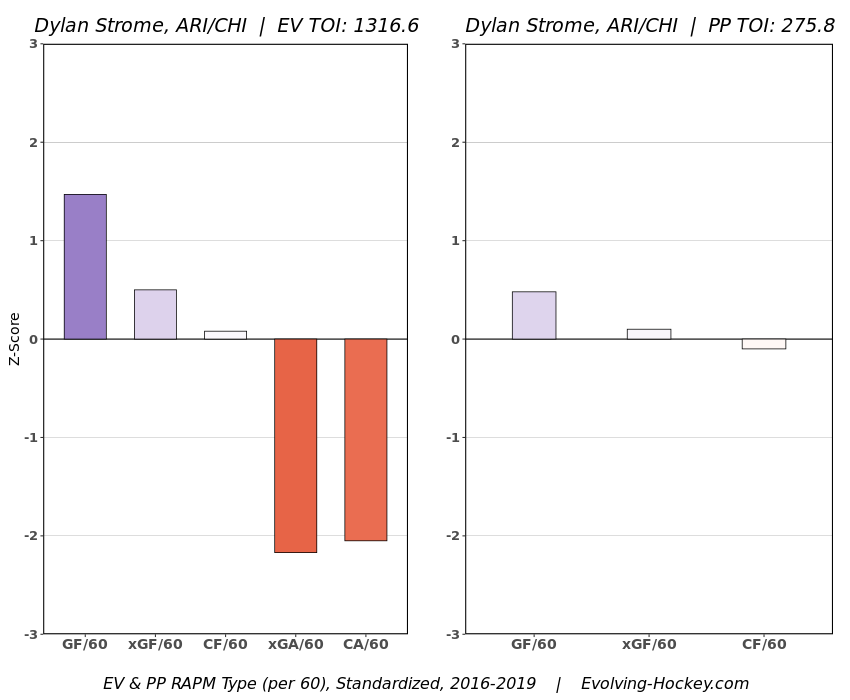
Everything changed, or so we thought, once he was traded to Chicago. He put up 51 points in 58 games following the Schmaltz swap and looked to be on track for what he was drafted for all those years ago. The funny part about his performance in Chicago is that it was not purely a product of playing with Patrick Kane. That can happen when someone does well in Chicago, but the team scored nearly as many goals at 5-on-5 (4.24) when Strome was not playing with Kane as they did when they skated together (4.37). The team was also a little bit better defensively when he was skating on a different line, too, and that's one of the important myths to dispel here. He did often play with Alex DeBrincat when he was not skating with Kane, so he still had a very talented winger to play with. The fact remains that no matter where he was in the lineup, Strome performed very well. According to CJ Turtoro's viz, between Arizona and Chicago that season, Strome was inside the 75th percentile for controlled zone exits and entries, as well as the 85th percentile in shot assists (passes leading to shots):
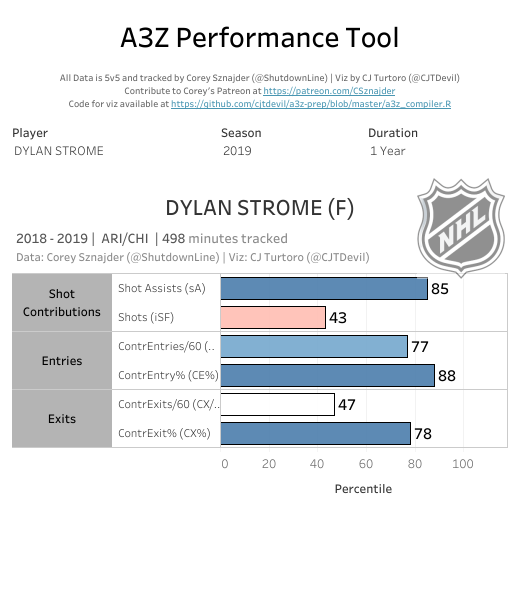
One season of performing well in this regard is no guarantee of anything but it was still very encouraging to see this from him. His first three seasons in the NHL saw his controlled zone entry percentage inside the 90th percentile of the league. He was very good in transition and the team's goal scoring results eventually followed.
Things did not go as well in 2019-20. Following a season where he had 51 points in 58 games for Chicago, he posted just 38 points in 58 games. What's curious here, though, is that his ice time went down. In sum, he still posted 2.3 points per 60 minutes at 5-on-5, a mark that put him right in line with Aleksander Barkov in Florida (2.31 per 60). He endured an ankle injury and we have to wonder how it affected him that year. He had 30 points in the team's 39 games leading to that injury but posted just 8 points in 18 games after returning. Had he been healthy all year, does he post something close to what he did in 2018-19? We'll never know, but it wasn't as if there were zero signs of offensive talent. He even showed improvement at the defensive end, as his defensive impacts went from two standard deviations lower than league average to less than one standard deviation. He was still below average, but there's a difference between being below average and being abysmal, and he was not the latter.
In fact, if we look at Strome's most recent impacts, according to HockeyViz, he was helping drive offence (positive number up top) and limit the opponent on defence (negative number on the bottom):
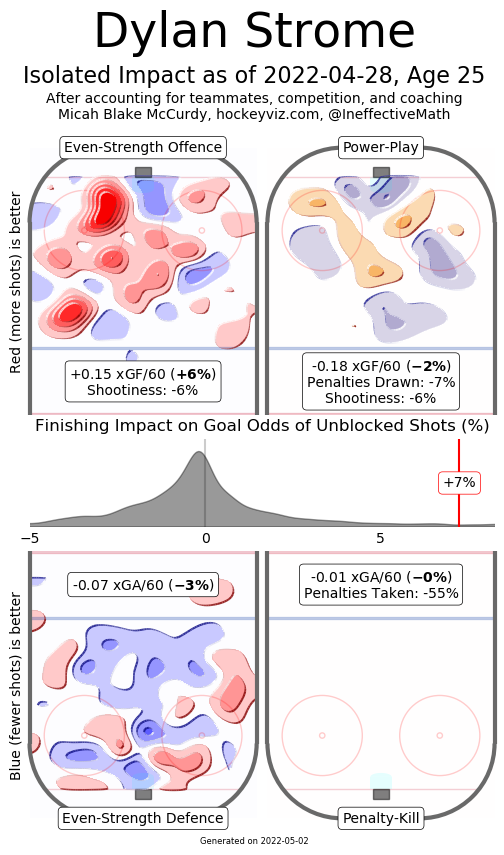
We'll notice that his shooting impact (+7%) is among the best in the league. He is a career 14.1% shooter in 273 games, so even if he doesn't shoot a lot, he makes them count when he does.
Even right up to 2021-22, he was still well above average in areas like zone entries with control and shot assists – things that lead to good chances for teammates – while improving his work in the defensive end, particularly when it came to moving the puck out cleanly. To be quite honest, this is a player that has shown huge improvements in the one area that really hampered him early in his career, but he didn't seem to be sacrificing too much offence to do it.
Strome paced for 57 points/82 games in 2021-22, which is a good-not-great season, considering the improved offence across the league. But there were some mitigating factors here. He managed just 0.37 secondary assists/60 minutes compared to 0.55 over the prior three seasons. His second assist rate declined by one-third, and had he been that three-year average, we could add 2-3 points off the top, and that pushes him over a 60 points/82 games pace.
There was also the problem of team scoring when he wasn't skating with Kane. He did spend roughly two-thirds of his 5-on-5 TOI with Kane and the team was very good offensively with them on the ice (3.66 goals/60). When he wasn't with Kane, though, the team's goal scoring rate fell off a cliff to just 1.24 goals/60. That was on the back of 4.55% shooting, too low to be sustainable. Even just being at 2.2 goals/60 – which would be below average – would have added 3-4 more points to his total, pushing his 82-game pace even higher. It wasn't just a problem for him, either, as the team's on-ice goal rate with Kane skating but Strome on the bench was still below the league average. This team was utterly bereft of scoring outside the top line, and it showed whenever they were broken up.
To be quite honest, in the right spot with the right line mates and top PP time, I think Strome has 70-point potential. I'm not sure he ever gets there, but with some rates more in line with career averages, his 82-game pace would have been around 65 points in 2021-22. He definitely needs to land in the right spot, but this isn't some throwaway 40-point centre that hasn't shown abilities at the NHL level.
What if he ends up in Boston, skating with David Pastrnak on the second line with top PP time? Or with the Rangers, alongside Artemi Panarin and in his brother's power-play role? Or maybe Colorado takes him as a reclamation project/replacement for Nazem Kadri? There are lots of great spots he could land, and I would not discount the production he can bring.
His problem, for fantasy, is he's not a multi-cat performer. He doesn't have a single season with at least two shots per game, relying more on percentages than volume. He also doesn't hit at all, posting 42 in his last 167 games. With low levels of PIMs and plus/minus being so uncertain, he really is a one-dimensional fantasy option. That brings value in points-only formats, but his profile is very limited in multi-cat leagues. In that sense, the type of fantasy league really matters to how we view him.
All that being said, there's still something here. If he can be average defensively but still pace for 60-70 points, that's a good NHLer. We will have to see where he lands, and it'll depend on the fantasy league I'm in, but this is one of the more intriguing free agents we have this season.
*


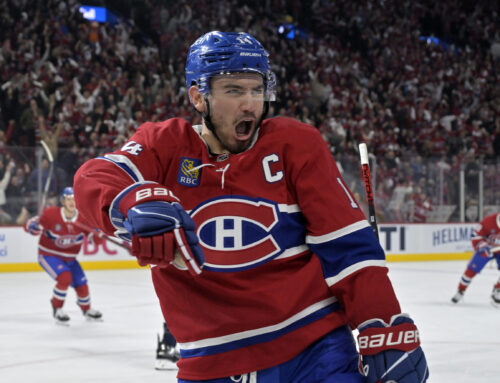
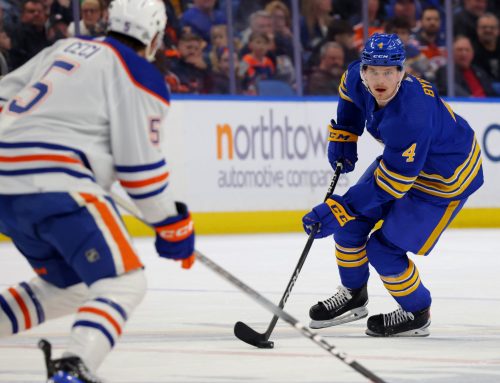
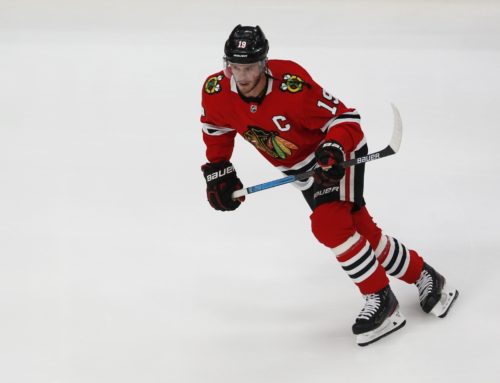
 PHI
PHI ANA
ANA VAN
VAN DET
DET BUF
BUF NYR
NYR MIN
MIN L.A
L.A
